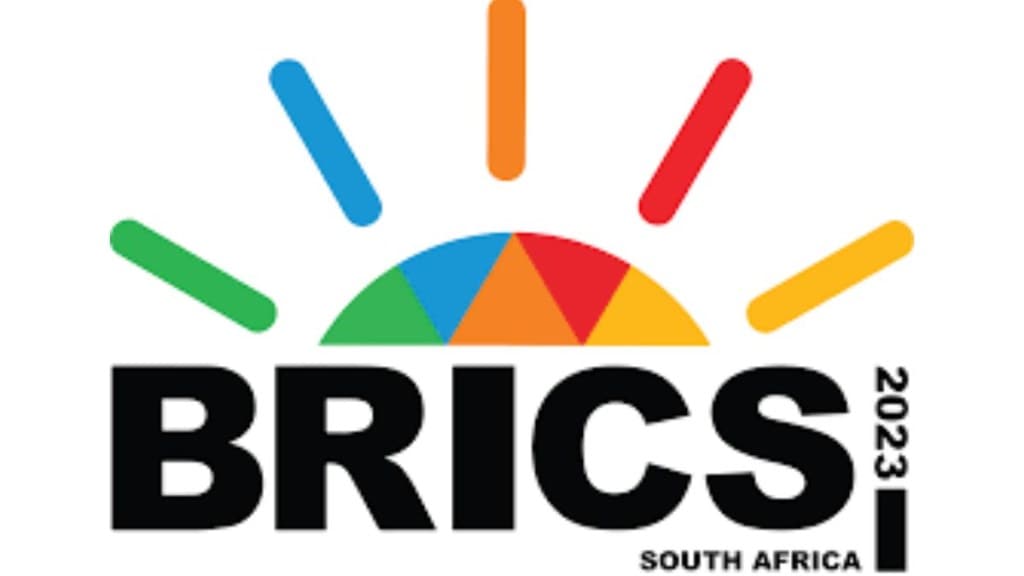From August 22nd to 24th, the 15th summit of the BRICS group comprising major emerging economies – Brazil, Russia, India, China, and South Africa will take place in Johannesburg, South Africa.
South African President Cyril Ramaphosa, Chinese President Xi Jinping, Brazilian President Luiz Inacio Lula da Silva, and Indian Prime Minister Narendra Modi will be physically present, while Russian President Vladimir Putin will participate virtually.
Virtual Presence Explained: Putin’s Absence at the Summit
The absence of President Putin is a consequence of an arrest warrant issued by the International Criminal Court (ICC). This warrant is related to alleged war crimes in Ukraine. Due to these circumstances, Putin will join the summit virtually. In his stead, Foreign Minister Sergei Lavrov will represent Russia in Johannesburg, underscoring the impact of geopolitics even in international gatherings.
Contemplating Expansion: BRICS Bloc’s Next Steps
One of the central topics on the summit’s agenda is the potential expansion of the BRICS bloc. As more countries seek to counterbalance the perceived dominance of the US-led Western powers, many nations, including Argentina, Iran, Saudi Arabia, and Egypt, have expressed interest in joining BRICS. Over 40 countries, such as Saudi Arabia, Iran, United Arab Emirates, Argentina, Indonesia, Bolivia, Morocco, Uruguay, Egypt, and Ethiopia, have shown their intent to be a part of this group. This wave of interest has spurred discussions about adding new members and defining the admission criteria.
Expansion Perspectives from BRICS Members
Within the summit, a divergence of opinions on expansion becomes apparent. China, locked in a trade and geopolitical rivalry with the United States, supports the idea of expanding BRICS. It sees this expansion as a way to enhance its global influence. In contrast, Brazil remains skeptical, cautious of diluting the consortium’s cohesiveness. Russia, aiming to overcome diplomatic isolation due to the Ukraine conflict, and South Africa, seeking renewed prominence, are proponents of incorporating new members.
India’s Balanced Approach: A Look at BRICS Expansion
India’s stance on expansion reflects pragmatism. External Affairs Minister Jaishankar in June shed light on the ongoing process. In June this year at the end of the BRICS Foreign Ministers meeting in cape Town, he mentioned that the expansion of the BRICS bloc is a work in progress. He noted that the leaders had tasked them in the previous year to formulate the guiding principles, standards, criteria, and procedures for new admissions. This intricate process involves strengthening ties among existing members, engaging with non-BRICS countries, and determining an appropriate format for expansion.
Ahead of Prime Minister Narendra Modi’s departure to Johannesburg, Foreign Secretary Vinay Kwatra said that India remains steadfast in its commitment to an inclusive and open-minded approach towards expansion. Adding, discussions center on consensus, with the guiding principles and criteria for expansion under scrutiny by the Sherpas of the BRICS. India’s positive intent sets the tone for the alliance’s growth and diversification.
BRICS’ Resonance: A Global Asset
The Brazilian Foreign Minister, Mauro Vieira, emphasized BRICS’ significance. Representing 40 percent of the global population, BRICS is deemed an invaluable asset. The success of this consortium over its 15-year history has caught the attention of numerous other nations. China’s Vice Minister, Ma Zhaoxu, highlighted the development of the BRICS+ model that China proposed during its chairmanship in 2022. This model has resonated positively among BRICS countries and the international community. It has created a platform for solidarity and cooperation among developing countries and emerging market economies.
Inclusive Dialogues: BRICS and Beyond
The summit’s focus extends beyond its founding members. Discussions are set to include leaders from across the globe. Invitations were extended to 67 leaders from Africa, Latin America, Asia, and the Caribbean. Notably, French President Emmanuel Macron was excluded due to Russia’s opposition, linked to France’s support for Ukraine against Russian invasion. Particular attention will also be devoted to exploring the relationship between BRICS and African countries, aligned with the summit’s theme “BRICS and Africa.” This emphasis aims to leverage the African Continental Free Trade Area for mutual benefit.
Building Economic Foundations: The BRICS Bank
Amidst diplomatic dialogues, practical discussions are also underway. The New Development Bank (NDB), often referred to as the BRICS bank, is under scrutiny. The summit will delve into strategies to enhance local currency fundraising and lending within the NDB. This move is seen as a mechanism to mitigate the impact of foreign exchange fluctuations. It is a practical demonstration of the consortium’s commitment to bolstering economic stability and growth.
Economic Cooperation: Nurturing Collaborations
Economic cooperation remains a key theme of the summit. Leaders are expected to engage in discussions regarding trade and investment opportunities. These conversations will span sectors ranging from energy cooperation and infrastructure development to the digital economy and the job market.
Unity Beyond Borders: “Friends of BRICS”
The summit’s final day is set to host leaders from various countries beyond the BRICS bloc. Invitations have been extended to leaders from diverse regions, including Africa, Latin America, Asia, and the Caribbean. The theme of “BRICS and Africa” serves as a bridge to connect BRICS nations with other regions, fostering collaboration and mutual growth.
In the heart of global dynamics, the 15th BRICS summit marks a pivotal moment. It is a testament to collaboration, a reflection of geopolitics, and a canvas where nations paint their aspirations. In this dialogue of diplomacy and dreams, BRICS showcases the power of unity, the nuances of international relations, and the promise of a world shaped by collective endeavours.

